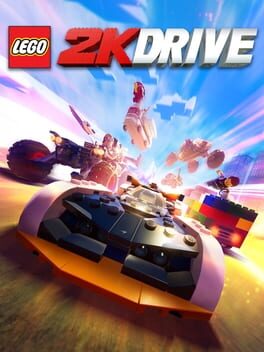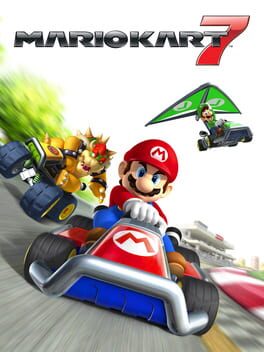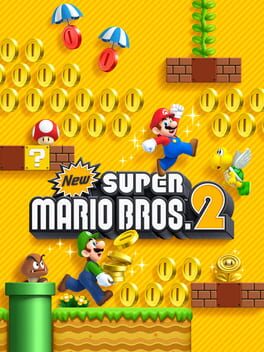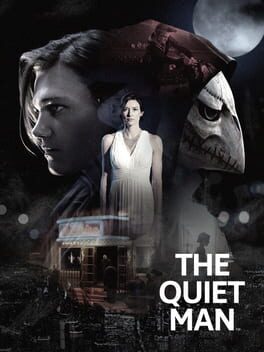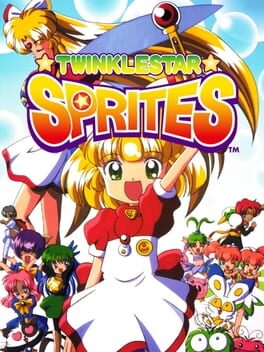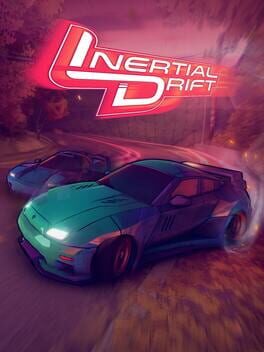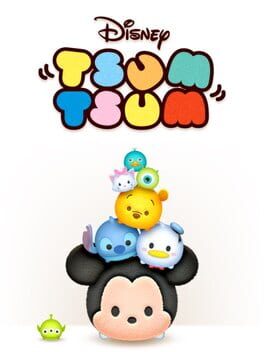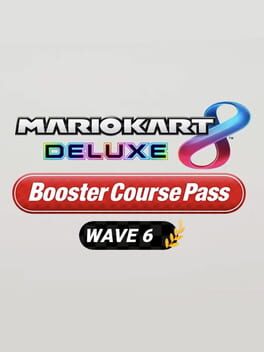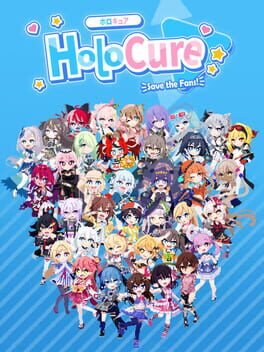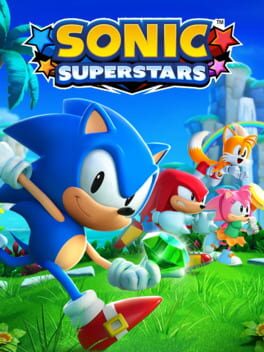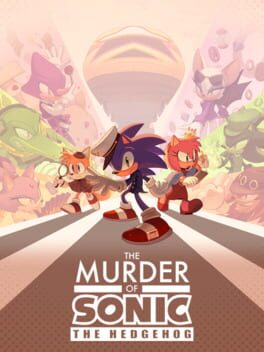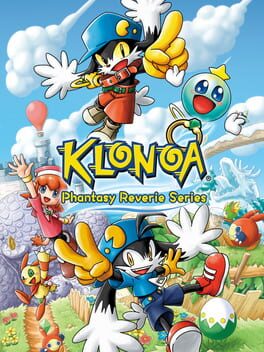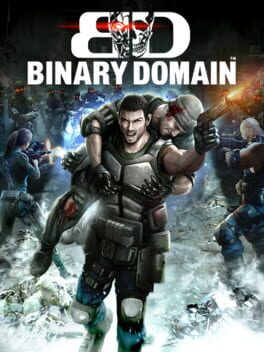smaench
2023
I don't feel it's controversial to say this - we are living in the worst era of video games in the medium’s history. In this post-creative type age, AAA games are designed by corporate committees, the bleeding hearts and artists chained to their whim. Here's $10 billion dollars, make a game. Your livelihoods are threatened if it falls beneath our expectations, except not really because we're going to lay off 60% of your team anyway after launch. We want a remake of an old classic of yours now that we've bought the rights from your old publisher - we'll give you no more than five years to finish regurgitating the same game you made in a fifth of the time two decades ago but your game will still come out unpolished, unappreciated, your bloody hands and dried tear ducts for naught. We're your new publishers, we're looking for a change of pace from your streak of critically acclaimed titles - we feel a live service game will be more beneficial to us. We’ll be looking into layoffs and a potential merger if the Metacritic score doesn’t meet our expectations. It cannot be understated or made any clearer - the bubble is not about to burst; the bubble is bursting.
It goes without saying, and there is no exception in this day and age, that if a AAA game is good, it is good in spite of any grievous sins it commits. LEGO 2K Drive is a fun arcade racer. LEGO 2K Drive also costs $60 USD, has five consecutive battle passes each locked behind their own purchase, and in-game currency is drip-fed at a consistency I’ve seen more generous in Korean F2P mobile games.
What is the point of sending obviously hardworking, dedicated game developers to this critical death? Why must creative teams have to be chained to the ankles of executives uninterested in art form - merging, dissolving, firing developers at will off the weights of failures not their own? 2K Drive is fun. Undoubtedly. The divide between the joy of its loving arcadey gameplay and creative spirit to the horror of its fleshy, bleeding abscess of finance-leeching rotting flesh is too palpable. Though leeching it does, because after some time the imbalance grows too great.
User-made custom car creations are downloadable in-game in its current state, but I distinctly remember why publisher 2K had to announce this wasn’t planned to be before release, much to the chagrin of, well, everyone. What’s the point in creating if you can’t share with the world? The answer became obvious almost immediately when looking within. Why do I get 10 Brickbux for getting a gold medal in a challenge, and 50 when winning a race, when a fucking cosmetic car costs 10,000? Oh, that’s an easy answer, because you’d have no reason to be pressed to pay real money to boost your in-game currency if you could just download the cool user-created stuff online. This isn’t counting the five consecutive battle passes. This game also costs $60.
2K Drive’s progression is, by design, torturous, but its gameplay is at a clear odds from it. Cars handle well, its challenge missions engaging and varied, its races variably frantic and exciting, its story a cute and charming melting parody pot of racing story tropes. Despite finding myself growing more and more averse to the tired trend of open world games, this is where the divide is drawn with mile-wide crayon - it’s fun. The plainness of its formula is upended by the sheer joy of absurdity it relishes in - barreling through structures, rocketing through explosions of thousands of LEGO pieces both structural and minifigure (yes, you can just mow down pedestrians in this, it’s hilarious), pun-riddled dialogue both confident as it is surprisingly more endearing than annoying (something I think the LEGO games have always been good at). Unfortunately, its wholehearted spirit is progressively crushed the more time you invest, because you're expected to invest as much money as you do your own time into 2K Drive. Progression stagnates, incentives are diminished, and the only joy you can wring out after you feel closed off completely is just enjoying the online races yourself, outside of the story mode. Oh wait, no you can't, because the online also barely works.
You don’t need to stretch your neck out very far to see the state of the way multimedia is being curated today, and you don’t need a third eye and an all-encompassing andromedatic galaxy brain to see how much art today is dictated by committee - this is just the most obvious its ever looked. Underneath its Financial Terror Shield is a game that’s struggling to exist - an honest core, crying by itself, to just be a game. We’re undoubtedly worse off now, but this game wouldn’t even be much different 10 years ago. Its future also feels all too certain, being under the reins of many alike a publisher more eager to kill off a game’s entire service before they’ll let it live indefinitely without profit. It’s not just developers who’ve been demoralized and dehumanized throughout this process - you are also no longer a fan. You are a demographic, a consumer, a target market, complicit either way you look at it. If you need any further proof of the post-post times we live in, 7 companies have laid off their employees in the week I spent writing this on and off, and it’s only a matter of time before every brick in this failing structure is put back in its box. The most radical action a consumer can perform today is to download a user-made LEGO rendition of the Flintstone's Flintmobile off the content shop and not spend their actual Brickbux on the corporate-mandated seasonal coupes, and hope that when the last brick falls, we can all put a hand towards rebuilding.
It goes without saying, and there is no exception in this day and age, that if a AAA game is good, it is good in spite of any grievous sins it commits. LEGO 2K Drive is a fun arcade racer. LEGO 2K Drive also costs $60 USD, has five consecutive battle passes each locked behind their own purchase, and in-game currency is drip-fed at a consistency I’ve seen more generous in Korean F2P mobile games.
What is the point of sending obviously hardworking, dedicated game developers to this critical death? Why must creative teams have to be chained to the ankles of executives uninterested in art form - merging, dissolving, firing developers at will off the weights of failures not their own? 2K Drive is fun. Undoubtedly. The divide between the joy of its loving arcadey gameplay and creative spirit to the horror of its fleshy, bleeding abscess of finance-leeching rotting flesh is too palpable. Though leeching it does, because after some time the imbalance grows too great.
User-made custom car creations are downloadable in-game in its current state, but I distinctly remember why publisher 2K had to announce this wasn’t planned to be before release, much to the chagrin of, well, everyone. What’s the point in creating if you can’t share with the world? The answer became obvious almost immediately when looking within. Why do I get 10 Brickbux for getting a gold medal in a challenge, and 50 when winning a race, when a fucking cosmetic car costs 10,000? Oh, that’s an easy answer, because you’d have no reason to be pressed to pay real money to boost your in-game currency if you could just download the cool user-created stuff online. This isn’t counting the five consecutive battle passes. This game also costs $60.
2K Drive’s progression is, by design, torturous, but its gameplay is at a clear odds from it. Cars handle well, its challenge missions engaging and varied, its races variably frantic and exciting, its story a cute and charming melting parody pot of racing story tropes. Despite finding myself growing more and more averse to the tired trend of open world games, this is where the divide is drawn with mile-wide crayon - it’s fun. The plainness of its formula is upended by the sheer joy of absurdity it relishes in - barreling through structures, rocketing through explosions of thousands of LEGO pieces both structural and minifigure (yes, you can just mow down pedestrians in this, it’s hilarious), pun-riddled dialogue both confident as it is surprisingly more endearing than annoying (something I think the LEGO games have always been good at). Unfortunately, its wholehearted spirit is progressively crushed the more time you invest, because you're expected to invest as much money as you do your own time into 2K Drive. Progression stagnates, incentives are diminished, and the only joy you can wring out after you feel closed off completely is just enjoying the online races yourself, outside of the story mode. Oh wait, no you can't, because the online also barely works.
You don’t need to stretch your neck out very far to see the state of the way multimedia is being curated today, and you don’t need a third eye and an all-encompassing andromedatic galaxy brain to see how much art today is dictated by committee - this is just the most obvious its ever looked. Underneath its Financial Terror Shield is a game that’s struggling to exist - an honest core, crying by itself, to just be a game. We’re undoubtedly worse off now, but this game wouldn’t even be much different 10 years ago. Its future also feels all too certain, being under the reins of many alike a publisher more eager to kill off a game’s entire service before they’ll let it live indefinitely without profit. It’s not just developers who’ve been demoralized and dehumanized throughout this process - you are also no longer a fan. You are a demographic, a consumer, a target market, complicit either way you look at it. If you need any further proof of the post-post times we live in, 7 companies have laid off their employees in the week I spent writing this on and off, and it’s only a matter of time before every brick in this failing structure is put back in its box. The most radical action a consumer can perform today is to download a user-made LEGO rendition of the Flintstone's Flintmobile off the content shop and not spend their actual Brickbux on the corporate-mandated seasonal coupes, and hope that when the last brick falls, we can all put a hand towards rebuilding.
2011
I sometimes feel like I had a good fill of the 3DS's library during its heyday, but then I remember I was playing stuff along the lines of Tails Adventure on Virtual Console and Ketzal's Corridors, and not like, I don't know, any of the actual top 20 best selling games on the damn thing. So, somehow, my first experience with Mario Kart 7 happens to be in 2024.
Much like what I feel Smash Ultimate did for Smash 4, I feel like Mario Kart 7 has lost a lot of its identity and purpose in a post-Mario Kart 8 + Deluxe + Booster Course Pass world.
But also much like how I feel about Smash 4, I don't find their experiences inessential, because both Smash 4 and Mario Kart 7 have just enough unique quirks and intricacies worth taking a look at.
The paragliding, as it was introduced here, plays so much more elegantly than I was used to for the past 10 years. It's the poster feature of the game along with the underwater traversal, but it's moreso introduced as a reward for hitting the off-path blue ramps and not entirely the frontfacing feature this game's marketing of yesteryear would have you suggest. Interestingly enough, sailing is more responsive to player input here. You can actually make some intricate moves in the air and keep your altitude, as opposed to how automated it feels in 8. It feels a lot more in-hand with how, unlike the mandatory aquatic karting, paragliding is treated as a reward here and not an automated falling section granted upon every player off the same track-wide ramp as neutered it felt in 8. You can actually take your sails pretty far here, moreso than when on even the same tracks in Mario Kart 8 and Tour. The underwater segments, on the other hand, felt just as weightless in handling as they do in variety and purpose, sadly not much different from how they are now. The trick system takes the runway median here, signified by the fact that they're actually on a humanly possible button to activate this time (You don't remember having to press Up on the D-pad back on Mario Kart Wii? Because I do.) Tracks are garnished with half-pipes and ramps, moreso than they did on Wii, and trick boosting feels more powerful than it ever did in the series here, especially when chained. That final stretch of this game's Rainbow Road that's just a long stretch of ramps on straights to the finish line? Exhilarating; S tier track for that alone.
Balancing changes are definitely felt, what with the attainability of triple mushrooms available all the way up to second place, drift boosts taking just a bit longer to activate so they feel less spammable, and the infamous series CPU rubberbanding is felt here one last time before I feel it was finally nerfed greatly in 8. (I personally never minded the rubberbanding, playing at a high skill level feels too boring in 8, where you can practically lap the back half of Hard CPUs at 150-200cc.)
Unfortunately the biggest hit this game has taken with its age is within its track relevancy - 8's returning track list perhaps favored from Mario Kart 7 a bit too much, so a lot of a first time playthrough in 2024 will be a lot of “been there, done that." (Doubly so if you've played Mario Kart 8 and Deluxe pre-Booster Course Pack, where these tracks dominated the popular vote online. Christ, Piranha Plant Slide makes me physically ill in this day and age.) Though that is not to say Mario Kart 7 would be a pointless retread today, because there's still some great tracks in here exclusive to this title: both Wuhu Island tracks are fantastic, some of the highest tier in the series for me personally, I loved Bowser’s Castle in this one, and my biggest shock of all was seeing the only two tracks in my Booster Course Pass wishlist that didn't make it here - DS Airship Fortress and GCN Dino Dino Jungle. Loved seeing them here again. (Also, to everyone complaining about how Coconut Mall’s aesthetics were "ruined” in 8’s Booster Course Pass, did we just gloss over how it was here? Same thing.) Mario Kart 7's Rainbow Road though? I already mentioned it earlier, but it's the best in the series, or at least tied with Wii.
Mario Kart 7, as it is now, lives a very contradictory existence. As most of its content lives on in both 8 and Tour, the actual intricacies of its mechanics and balancing feel exclusive to itself here. Much like how you can always go back to Smash 4 for Smash Run and Smash Tour (both of which are fun, my comments are always open for discourse), Mario Kart 7 still has its reasons for going back to, and I will be doing so, because God damn those Wuhu tracks are good, I can play as Wiggler and Honey Queen for some reason, and to witness a glimmer of the uber-polished, arguably best era of Mario Kart that was yet to come. Mario Kart 8 ran a long lap before I realized it was my favorite, but before then, Mario Kart 7 refreshed the series in an under-appreciated way. The seeds of the series' current generational quality streak were planted here, though seeds they were.
Much like what I feel Smash Ultimate did for Smash 4, I feel like Mario Kart 7 has lost a lot of its identity and purpose in a post-Mario Kart 8 + Deluxe + Booster Course Pass world.
But also much like how I feel about Smash 4, I don't find their experiences inessential, because both Smash 4 and Mario Kart 7 have just enough unique quirks and intricacies worth taking a look at.
The paragliding, as it was introduced here, plays so much more elegantly than I was used to for the past 10 years. It's the poster feature of the game along with the underwater traversal, but it's moreso introduced as a reward for hitting the off-path blue ramps and not entirely the frontfacing feature this game's marketing of yesteryear would have you suggest. Interestingly enough, sailing is more responsive to player input here. You can actually make some intricate moves in the air and keep your altitude, as opposed to how automated it feels in 8. It feels a lot more in-hand with how, unlike the mandatory aquatic karting, paragliding is treated as a reward here and not an automated falling section granted upon every player off the same track-wide ramp as neutered it felt in 8. You can actually take your sails pretty far here, moreso than when on even the same tracks in Mario Kart 8 and Tour. The underwater segments, on the other hand, felt just as weightless in handling as they do in variety and purpose, sadly not much different from how they are now. The trick system takes the runway median here, signified by the fact that they're actually on a humanly possible button to activate this time (You don't remember having to press Up on the D-pad back on Mario Kart Wii? Because I do.) Tracks are garnished with half-pipes and ramps, moreso than they did on Wii, and trick boosting feels more powerful than it ever did in the series here, especially when chained. That final stretch of this game's Rainbow Road that's just a long stretch of ramps on straights to the finish line? Exhilarating; S tier track for that alone.
Balancing changes are definitely felt, what with the attainability of triple mushrooms available all the way up to second place, drift boosts taking just a bit longer to activate so they feel less spammable, and the infamous series CPU rubberbanding is felt here one last time before I feel it was finally nerfed greatly in 8. (I personally never minded the rubberbanding, playing at a high skill level feels too boring in 8, where you can practically lap the back half of Hard CPUs at 150-200cc.)
Unfortunately the biggest hit this game has taken with its age is within its track relevancy - 8's returning track list perhaps favored from Mario Kart 7 a bit too much, so a lot of a first time playthrough in 2024 will be a lot of “been there, done that." (Doubly so if you've played Mario Kart 8 and Deluxe pre-Booster Course Pack, where these tracks dominated the popular vote online. Christ, Piranha Plant Slide makes me physically ill in this day and age.) Though that is not to say Mario Kart 7 would be a pointless retread today, because there's still some great tracks in here exclusive to this title: both Wuhu Island tracks are fantastic, some of the highest tier in the series for me personally, I loved Bowser’s Castle in this one, and my biggest shock of all was seeing the only two tracks in my Booster Course Pass wishlist that didn't make it here - DS Airship Fortress and GCN Dino Dino Jungle. Loved seeing them here again. (Also, to everyone complaining about how Coconut Mall’s aesthetics were "ruined” in 8’s Booster Course Pass, did we just gloss over how it was here? Same thing.) Mario Kart 7's Rainbow Road though? I already mentioned it earlier, but it's the best in the series, or at least tied with Wii.
Mario Kart 7, as it is now, lives a very contradictory existence. As most of its content lives on in both 8 and Tour, the actual intricacies of its mechanics and balancing feel exclusive to itself here. Much like how you can always go back to Smash 4 for Smash Run and Smash Tour (both of which are fun, my comments are always open for discourse), Mario Kart 7 still has its reasons for going back to, and I will be doing so, because God damn those Wuhu tracks are good, I can play as Wiggler and Honey Queen for some reason, and to witness a glimmer of the uber-polished, arguably best era of Mario Kart that was yet to come. Mario Kart 8 ran a long lap before I realized it was my favorite, but before then, Mario Kart 7 refreshed the series in an under-appreciated way. The seeds of the series' current generational quality streak were planted here, though seeds they were.
I think I might have to bend the knee here. Not all the way, but..
New Super Mario Bros. 2 is, metaphysically, a lot of things, and also not much. It's Super Mario at its most ad nauseum. I never bothered with it at launch because, like you, I was feeling the fatigue of the New. I let it pass me by as I did most of Nintendo's catalogue of this era, but a decade later, in this day and age where It's Actually Really Easy To Hack Your 3DS, what's the harm in trying?
I'll get the obvious out of the way, NSMB2 is nothing New. It's a tepid celebration of the passé, a slideshow of the been-theres and done-thats. You've seen it before. At the time, when you didn't even know it, you were gonna see it again (but if you wanna be pedantic, sure, you did know). New Super Mario Bros. 2, like most of Nintendo's exports of the early 2010s, is and was perfectly content being vehemently washed of purpose.
But NSMB2 represents a stubborn truth here, one I think many fellow gamer internetizens who utterly disdain it for its blandness feel obligated to gloss over: it's not bad.
I tend to enter games of this kind of reviled category without any expectations if I can manage that. I don’t go in looking to redeem the perceived unredeemable and vice versa, and my groundbreaking, earth-shatteringly contrarian take here - is that it's fine.
I've gone through the obvious; you've seen this before, but would you deny it was ever bad? More of the same is certainly fatiguing, but is New Super Mario Bros. 2 actually a substantial drop in quality from its formers? I don't really think so. You go through Grass Land, Sand Land, Beach Land, Swamp Land, Sky Land, and Lava Land pretty much in the same order as you've done twice before by this point. Actual new stage gimmicks are few and far between. The new “coin rush” ethos here isn't the most convention-flipping as Nintendo wanted you to believe, sure, but I'd argue some identity is better than none (looking at New Super Mario Bros. U here).
It wasn't until the very end of the game that I realized I was never really disengaged. Even at Super Mario's universally-perceived worst, I can think of plenty of other platformers with much worse level design. My engagement never flatlined, and that goes double for the challenges in going for the Star Coins this time around - they're actually fun, more than I think they've ever been in this series.
All of this text is to just overly extend what was probably my only thought playing this: “This is it? This is the worst Super Mario game?" I can't say it's anything more than good at best, but at its worst (and I'm just preaching to the choir here) it's uninspired. It certainly isn't New, but I don't think that makes it bad.
New Super Mario Bros. 2 is, metaphysically, a lot of things, and also not much. It's Super Mario at its most ad nauseum. I never bothered with it at launch because, like you, I was feeling the fatigue of the New. I let it pass me by as I did most of Nintendo's catalogue of this era, but a decade later, in this day and age where It's Actually Really Easy To Hack Your 3DS, what's the harm in trying?
I'll get the obvious out of the way, NSMB2 is nothing New. It's a tepid celebration of the passé, a slideshow of the been-theres and done-thats. You've seen it before. At the time, when you didn't even know it, you were gonna see it again (but if you wanna be pedantic, sure, you did know). New Super Mario Bros. 2, like most of Nintendo's exports of the early 2010s, is and was perfectly content being vehemently washed of purpose.
But NSMB2 represents a stubborn truth here, one I think many fellow gamer internetizens who utterly disdain it for its blandness feel obligated to gloss over: it's not bad.
I tend to enter games of this kind of reviled category without any expectations if I can manage that. I don’t go in looking to redeem the perceived unredeemable and vice versa, and my groundbreaking, earth-shatteringly contrarian take here - is that it's fine.
I've gone through the obvious; you've seen this before, but would you deny it was ever bad? More of the same is certainly fatiguing, but is New Super Mario Bros. 2 actually a substantial drop in quality from its formers? I don't really think so. You go through Grass Land, Sand Land, Beach Land, Swamp Land, Sky Land, and Lava Land pretty much in the same order as you've done twice before by this point. Actual new stage gimmicks are few and far between. The new “coin rush” ethos here isn't the most convention-flipping as Nintendo wanted you to believe, sure, but I'd argue some identity is better than none (looking at New Super Mario Bros. U here).
It wasn't until the very end of the game that I realized I was never really disengaged. Even at Super Mario's universally-perceived worst, I can think of plenty of other platformers with much worse level design. My engagement never flatlined, and that goes double for the challenges in going for the Star Coins this time around - they're actually fun, more than I think they've ever been in this series.
All of this text is to just overly extend what was probably my only thought playing this: “This is it? This is the worst Super Mario game?" I can't say it's anything more than good at best, but at its worst (and I'm just preaching to the choir here) it's uninspired. It certainly isn't New, but I don't think that makes it bad.
2023
So utterly misogynistic it fails to reach any point of competency. There is not a single quality in this main character that resembles anything relatably human, and synergetically not a single romantic candidate behaves like any woman that ever existed. By proxy and maybe my inexperience with dating sims, it is the most hilarious thing I've witnessed so far this year. An extensive case study on the male gaze. Love really can be all around, for you, for me, and for every twisted amalgamation of ungrounded personality this game's universe believes to represent.
2018
1996
2020
I've been looking for an arcade racer to sink my teeth into while waiting for the release of some of my personal highly anticipated titles (Aero GPX, Victory Heat Rally, Over Jump Rally, SPGP Super Polygon Grand Prix, check all those out BTW) and Inertial Drift was one that I had eyeballed for a bit since I first saw that I missed it as a free game on Epic. After finally taking my chances on it now I'm a bit flummoxed.
The drift system is unique, using the right stick to control your drift in conjunction with your regular steering, stampering the brake and gas to fine-tune each turn on the fly. I only played for about an hour before coming to terms with how much I wasn't enjoying that, and a lot of my distaste comes from its presentation wearing me down along with its central mechanic.
Maybe it's my own personal fatigue with the overarching neon drape that has permeated the indie racing genre as of late, but the first thing that bored me before any of the gameplay did was its visuals. Its nothingburger Story Mode consists of playing the same track 5 times before moving on to the next and the whole thing is over in the blink of an eye. Its central race mode is a bore as it can only consist of 1v1s with no collision, therefore no slipstreaming, and ultimately no proper means of engaging your rivals, which makes its strange preference, no, insistance on Tokyo Xtreme Racer-type rival score attack matches seem more obvious. All of this is not to mention how slippery and unsatisfying its central drift mechanic becomes, especially under stress; all of it made to feel insulting as your HUD is spamclogged with pseudo-motivational dialogue from your rivals that shows up every time you eat shit. Seeing "Wow, you totally OWNED that turn!" from a Picrew looking avatar pop up in my peripheral vision every time I eat a rail makes me all the more agitated as I wonder if it's the game trying to make me not feel bad or if it's just reading my gameplay totally wrong. Either way I got so annoyed by that after the 20th time that I just uninstalled it to make the voices go away. Maybe Inertial Drift is a game that means more than it lets on, and I would say it's even more the fault of my own for it not falling within my personal aesthetic preferences, but I still firmly believe you have better options if you want to play an arcade racer today.
The drift system is unique, using the right stick to control your drift in conjunction with your regular steering, stampering the brake and gas to fine-tune each turn on the fly. I only played for about an hour before coming to terms with how much I wasn't enjoying that, and a lot of my distaste comes from its presentation wearing me down along with its central mechanic.
Maybe it's my own personal fatigue with the overarching neon drape that has permeated the indie racing genre as of late, but the first thing that bored me before any of the gameplay did was its visuals. Its nothingburger Story Mode consists of playing the same track 5 times before moving on to the next and the whole thing is over in the blink of an eye. Its central race mode is a bore as it can only consist of 1v1s with no collision, therefore no slipstreaming, and ultimately no proper means of engaging your rivals, which makes its strange preference, no, insistance on Tokyo Xtreme Racer-type rival score attack matches seem more obvious. All of this is not to mention how slippery and unsatisfying its central drift mechanic becomes, especially under stress; all of it made to feel insulting as your HUD is spamclogged with pseudo-motivational dialogue from your rivals that shows up every time you eat shit. Seeing "Wow, you totally OWNED that turn!" from a Picrew looking avatar pop up in my peripheral vision every time I eat a rail makes me all the more agitated as I wonder if it's the game trying to make me not feel bad or if it's just reading my gameplay totally wrong. Either way I got so annoyed by that after the 20th time that I just uninstalled it to make the voices go away. Maybe Inertial Drift is a game that means more than it lets on, and I would say it's even more the fault of my own for it not falling within my personal aesthetic preferences, but I still firmly believe you have better options if you want to play an arcade racer today.
10 years. I can never escape you.
Mobile games are hard for me to figure out. The reverse tactility of using your finger on a screen feels repulsive to me. I can't wrap my head around a game having tens of thousands of levels of incrementing difficulty to attempt retainment (Candy Crush, Dr. Mario World, Sailor Moon Drops, etc.). I shouldn't have to comment on microtransactions, either, and that goes double for gacha.
Disney Tsum Tsum, with all of its mobile gaming sins in the form of its wicked multicurrency rewards given at pittances, gacha-centered progression married with seasonal FOMO, and scoring that grows with lifetime multiplier gains is the most potent witches' brew of everything I should hate about it. And yet, for almost 10 years now, this hasn't been the case. Rain or shine, through sickness and health, I always end up re-installing Disney Tsum Tsum every now and then.
To disclaim, everything I like about Disney Tsum Tsum is in spite of the sins it commits, and I've learned very early you can rarely engage with them. Despite everything it throws at you to tempt you to gold out and spin its plentiful wheels of pitiful prizes for a king’s ransom, I’ve easily found my fun at this carnival purely within its ballpit, away from the raffles.
Every round, a 60-second burst of honing pattern-seeking and reflex training. A physics-based Match Three or More that begs, no, demands a peak performance response time from your sight to your motors. The visuals are cute, the sound design addictive, its responsiveness practically perfect. Every pop of a combo bubble, every bling-boom of a Fever, the blips building your chain, the explosive rising chimes on release-
I find it all to be a rush, genuinely exhilarating, and not in the unhealthy gratuitous here-is-your-big-number games I find the state of most mobile (and otherwise) games today. I've no need to crank its gachapon wheels or shill out my allowance of tokens for upgrades; I've found my fun in just the act of playing itself, the rare indulgence of trying a spin or two if just to burn some of my dragon's hoard of accumulated free currency. You're tempted to play weekly bingo challenge cards so you can earn enough crumbs to try for the 0.01% Disney 100 Premium Tsum. I'm tempted to beat my Weekly, Monthly, or even All-Time score, for nothing more than the gratification of doing so. It doesn't seem like it at first glance, with what its ugly constant barrage of event and challenge notifications on every screen, but Disney Tsum Tsum will let you play either way, and that's good. I don't need or want to collect. I'm here to pop Tsums.
Removed from all that makes you and I wroth, Disney Tsum Tsum, even after 10 years, still stands as an excellent arcade score attack game, and its insistence on player skill with its gratuitousness pushed to the side only shows the effectiveness of its personal lasting power for me.
Mobile games are hard for me to figure out. The reverse tactility of using your finger on a screen feels repulsive to me. I can't wrap my head around a game having tens of thousands of levels of incrementing difficulty to attempt retainment (Candy Crush, Dr. Mario World, Sailor Moon Drops, etc.). I shouldn't have to comment on microtransactions, either, and that goes double for gacha.
Disney Tsum Tsum, with all of its mobile gaming sins in the form of its wicked multicurrency rewards given at pittances, gacha-centered progression married with seasonal FOMO, and scoring that grows with lifetime multiplier gains is the most potent witches' brew of everything I should hate about it. And yet, for almost 10 years now, this hasn't been the case. Rain or shine, through sickness and health, I always end up re-installing Disney Tsum Tsum every now and then.
To disclaim, everything I like about Disney Tsum Tsum is in spite of the sins it commits, and I've learned very early you can rarely engage with them. Despite everything it throws at you to tempt you to gold out and spin its plentiful wheels of pitiful prizes for a king’s ransom, I’ve easily found my fun at this carnival purely within its ballpit, away from the raffles.
Every round, a 60-second burst of honing pattern-seeking and reflex training. A physics-based Match Three or More that begs, no, demands a peak performance response time from your sight to your motors. The visuals are cute, the sound design addictive, its responsiveness practically perfect. Every pop of a combo bubble, every bling-boom of a Fever, the blips building your chain, the explosive rising chimes on release-
I find it all to be a rush, genuinely exhilarating, and not in the unhealthy gratuitous here-is-your-big-number games I find the state of most mobile (and otherwise) games today. I've no need to crank its gachapon wheels or shill out my allowance of tokens for upgrades; I've found my fun in just the act of playing itself, the rare indulgence of trying a spin or two if just to burn some of my dragon's hoard of accumulated free currency. You're tempted to play weekly bingo challenge cards so you can earn enough crumbs to try for the 0.01% Disney 100 Premium Tsum. I'm tempted to beat my Weekly, Monthly, or even All-Time score, for nothing more than the gratification of doing so. It doesn't seem like it at first glance, with what its ugly constant barrage of event and challenge notifications on every screen, but Disney Tsum Tsum will let you play either way, and that's good. I don't need or want to collect. I'm here to pop Tsums.
Removed from all that makes you and I wroth, Disney Tsum Tsum, even after 10 years, still stands as an excellent arcade score attack game, and its insistence on player skill with its gratuitousness pushed to the side only shows the effectiveness of its personal lasting power for me.
Pros:
-Got misty-eyed revising Wii Rainbow Road again after maybe 13 or 14 years. I blinked at the last turn, on the last lap, and saw myself 11 years old again. I blinked again, and I was back to my normal, current self, obviously haven flown off the track and regaining speed to cross the finish line. I still finished 1st. My muscle memory, as honed as it was, yet tucked away in my memories, was still sharp as ever, but that brief moment of glimmering nostalgia - a bullet to the heart, lodging itself deep into a place long forgotten, was enough to stun me.
-At 96 tracks, Mario Kart 8 finally ends its run at a gargantuan, unbeatable size; it makes me wonder what could possibly become of the franchise's future. What started off as a title I was initially unimpressed with back in its Wii U days became a kart-racer I've since learned to love profusely, enough to have me bawling tears when the Booster Course Pass was announced two years ago.
-The celebratory lap is over, and Mario Kart's richest and most engaging title ends doubly as much. I've no doubt that we'll see another Mario Kart in the future, as the sprinkled-in original courses (which are all great) seem to peek into a Mario Kart yet to come, but the question begs.. Or rather, many questions beg. Many. With so much of the series' history represented here, the possibilities of what yields ahead seem infinite. I do hope to see the Booster Course Pass format persist in future installments; not just to add longevity, as I'm sure many people still have their course picks unfulfilled, but also as an immortalized testament and celebration of those memories, of which I and thousands, millions of others have.
Cons:
-Rosalina's Ice World
-Got misty-eyed revising Wii Rainbow Road again after maybe 13 or 14 years. I blinked at the last turn, on the last lap, and saw myself 11 years old again. I blinked again, and I was back to my normal, current self, obviously haven flown off the track and regaining speed to cross the finish line. I still finished 1st. My muscle memory, as honed as it was, yet tucked away in my memories, was still sharp as ever, but that brief moment of glimmering nostalgia - a bullet to the heart, lodging itself deep into a place long forgotten, was enough to stun me.
-At 96 tracks, Mario Kart 8 finally ends its run at a gargantuan, unbeatable size; it makes me wonder what could possibly become of the franchise's future. What started off as a title I was initially unimpressed with back in its Wii U days became a kart-racer I've since learned to love profusely, enough to have me bawling tears when the Booster Course Pass was announced two years ago.
-The celebratory lap is over, and Mario Kart's richest and most engaging title ends doubly as much. I've no doubt that we'll see another Mario Kart in the future, as the sprinkled-in original courses (which are all great) seem to peek into a Mario Kart yet to come, but the question begs.. Or rather, many questions beg. Many. With so much of the series' history represented here, the possibilities of what yields ahead seem infinite. I do hope to see the Booster Course Pass format persist in future installments; not just to add longevity, as I'm sure many people still have their course picks unfulfilled, but also as an immortalized testament and celebration of those memories, of which I and thousands, millions of others have.
Cons:
-Rosalina's Ice World
The only way to get me to play a game in a genre I find repulsively uninteresting is to make Inugami Korone a playable character. So far only one game has been able to do this.
2023
Sonic Superstars writing notes, brainstorming, review outline:
-Discuss the arbitrary nature of rating scales and the nature of their subjectivity
-A "3 out of 5" is an ultimately good score in my eyes, but not everyone sees it that way; I tend to not when I see it, even when it likewise adheres as "good' to that rating giver/user
-Sonic Superstars is a 3 out of 5 game to me, because I think it is a good game. People also give Superstars a 3 out of 5, some as negative and some as positive, but I can only ever see it as negative
-This could be because the majority of 3 out of 5 reviews feel overly negative to me, often winded rants over perceived mediocrity (or in some strange cases, a maddening sense of distaste) with a sprinkled "but I still liked it" here and there, usually leaving me feeling lost, uninformed, ultimately confused on how I should feel
-Maybe it's because the classic IGN "7 out of 10" score is an industry staple-stamp of certified filth? It feels like any game, between a 1-6 or an 8-10 is a wild card, a Pandora's Box, but a 7 is unanimous for "bad." I think the "3 out of 5" is a similar case, just the same connotation on a different metric, even though the math doesn't even translate the same way
-Or maybe it's because people approach Sonic differently, we've been in an era where Sonic has been incapable of playing ball with the AAA giants like he used to (or was he ever?). Discussion on Sonic, as viewed through the increasing number of lengthy Twitter analysis threads these past few days, proves easily that there's an endless depth of nuance to how a Sonic game stacks up.
-Digress. I think Sonic Superstars is "Good", and that's it. It's a game with flaws that I enjoyed. I briefly considered it a 3.5 out of 5, which constitutes "Very Good," but I couldn't hold myself to that, as much as my enjoyment entails so
-Do I let myself adjust imaginary point values in my head to maintain a level of objectivity? I feel like that's utterly pointless. My rating curves on every adjacent site have the exact same distribution. The uniformity looks nice but I often wonder if I'm not rating with my heart because of it - my maybe obsession with order and numerical scales that dictate quality and value. I've been this way since a child; constantly cataloguing, journaling, organizing, rating. Maybe I watched too much Siskel & Ebert reruns with my dad as a kid. Maybe I shouldn't have wrote in Roger Ebert as my celebrity idol essay topic in third grade.
-I wonder if it's all just a response to witnessing a fandom, maybe my first and in my heart, only, a community I've been a part of since my earliest conscious gaming memories, continuously spiral into a black hole of discourse and toxicity, both positive and negative. All of it is hard, maybe pointless, to parse. Nobody should criticize Sonic because the series is supposedly taking steps to improve itself and we should be grateful. Sonic should always be subject to criticism because Sonic has never been able to stand toe-to-toe with Mario, or any big-name series since the 90s. Sonic himself is a product of marketibility. A mascot for profit. My favorite games are Sonic games. The Sonic series has some of the worst games I've ever played. I think Sonic Team might be one of the only prominent developer teams branching as far as they truly can, trying to cover every single avenue for where Sonic could evolve and experiment mechanically. Sonic Team makes unnecessary changes to the formula, so much of these changes and experiments suck. I love their willingness to try. These off-kilter takes also negatively impact the series. Lost World. Baldy McNosehair. Sonic '06. Elise kiss. Sonic's dumb friends. Sonic was never good.
-Long decided since jotting these unsorted thoughts down that I'm just going to upload these notes as my review. I don't have an answer to my confusion.
-Sonic Superstars is a "Good" game. I personally give Sonic Superstars 3 out of 5 stars.
-https://www.ign.com/games/sonic-superstars
-Discuss the arbitrary nature of rating scales and the nature of their subjectivity
-A "3 out of 5" is an ultimately good score in my eyes, but not everyone sees it that way; I tend to not when I see it, even when it likewise adheres as "good' to that rating giver/user
-Sonic Superstars is a 3 out of 5 game to me, because I think it is a good game. People also give Superstars a 3 out of 5, some as negative and some as positive, but I can only ever see it as negative
-This could be because the majority of 3 out of 5 reviews feel overly negative to me, often winded rants over perceived mediocrity (or in some strange cases, a maddening sense of distaste) with a sprinkled "but I still liked it" here and there, usually leaving me feeling lost, uninformed, ultimately confused on how I should feel
-Maybe it's because the classic IGN "7 out of 10" score is an industry staple-stamp of certified filth? It feels like any game, between a 1-6 or an 8-10 is a wild card, a Pandora's Box, but a 7 is unanimous for "bad." I think the "3 out of 5" is a similar case, just the same connotation on a different metric, even though the math doesn't even translate the same way
-Or maybe it's because people approach Sonic differently, we've been in an era where Sonic has been incapable of playing ball with the AAA giants like he used to (or was he ever?). Discussion on Sonic, as viewed through the increasing number of lengthy Twitter analysis threads these past few days, proves easily that there's an endless depth of nuance to how a Sonic game stacks up.
-Digress. I think Sonic Superstars is "Good", and that's it. It's a game with flaws that I enjoyed. I briefly considered it a 3.5 out of 5, which constitutes "Very Good," but I couldn't hold myself to that, as much as my enjoyment entails so
-Do I let myself adjust imaginary point values in my head to maintain a level of objectivity? I feel like that's utterly pointless. My rating curves on every adjacent site have the exact same distribution. The uniformity looks nice but I often wonder if I'm not rating with my heart because of it - my maybe obsession with order and numerical scales that dictate quality and value. I've been this way since a child; constantly cataloguing, journaling, organizing, rating. Maybe I watched too much Siskel & Ebert reruns with my dad as a kid. Maybe I shouldn't have wrote in Roger Ebert as my celebrity idol essay topic in third grade.
-I wonder if it's all just a response to witnessing a fandom, maybe my first and in my heart, only, a community I've been a part of since my earliest conscious gaming memories, continuously spiral into a black hole of discourse and toxicity, both positive and negative. All of it is hard, maybe pointless, to parse. Nobody should criticize Sonic because the series is supposedly taking steps to improve itself and we should be grateful. Sonic should always be subject to criticism because Sonic has never been able to stand toe-to-toe with Mario, or any big-name series since the 90s. Sonic himself is a product of marketibility. A mascot for profit. My favorite games are Sonic games. The Sonic series has some of the worst games I've ever played. I think Sonic Team might be one of the only prominent developer teams branching as far as they truly can, trying to cover every single avenue for where Sonic could evolve and experiment mechanically. Sonic Team makes unnecessary changes to the formula, so much of these changes and experiments suck. I love their willingness to try. These off-kilter takes also negatively impact the series. Lost World. Baldy McNosehair. Sonic '06. Elise kiss. Sonic's dumb friends. Sonic was never good.
-Long decided since jotting these unsorted thoughts down that I'm just going to upload these notes as my review. I don't have an answer to my confusion.
-Sonic Superstars is a "Good" game. I personally give Sonic Superstars 3 out of 5 stars.
-https://www.ign.com/games/sonic-superstars
"What would Sonic do...?"
THINK!!
I'm late to the punch, but The Murder of Sonic the Hedgehog is as sweet as it is short. Just clocking in before the three hour mark, this point-and-click visual novel shows that its made with immense love and care; nobody in the entirety of Sonic's cast has been given this amount of attention and faithful writing since, and you're not going to want to hear it but say it with me anyway, Sonic the Hedgehog '06. Not only does every one of Sonic's friends act as they should, letting their own personalities shine, this was a perfect vehicle for some unique character interactions you couldn't get before, alongside some well-inversed callbacks that I didn't piece together until a few lines after.I wish Ian Flynn could write callbacks with this kind of subtlety.
As an experimental side game made by Sonic's social media team with SEGA's blessing, and with some lines in-game hinting as such, I can only hope they're cooking a successor already, potentially one with voice acting and more Sage. This was a great piece of fanservice, one that treats each of Sonic's wonderful friends with the respect they've deserved and have been deprived of for long over a decade.
THINK!!
I'm late to the punch, but The Murder of Sonic the Hedgehog is as sweet as it is short. Just clocking in before the three hour mark, this point-and-click visual novel shows that its made with immense love and care; nobody in the entirety of Sonic's cast has been given this amount of attention and faithful writing since, and you're not going to want to hear it but say it with me anyway, Sonic the Hedgehog '06. Not only does every one of Sonic's friends act as they should, letting their own personalities shine, this was a perfect vehicle for some unique character interactions you couldn't get before, alongside some well-inversed callbacks that I didn't piece together until a few lines after.
As an experimental side game made by Sonic's social media team with SEGA's blessing, and with some lines in-game hinting as such, I can only hope they're cooking a successor already, potentially one with voice acting and more Sage. This was a great piece of fanservice, one that treats each of Sonic's wonderful friends with the respect they've deserved and have been deprived of for long over a decade.
1995
A juggernaut of groundbreaking ideas encapsulated into distilled magic. Yes, Chrono Trigger is always referenced as the end-all-be-all masterpiece JRPG, and as someone who prefers to view products before my time as products of their time, it's almost too easy to say the mass opinion is correct in its case.
Interpolating Chrono Trigger's multilayered time-travelling narrative masterstrokes is a combat system that combines the best of Final Fantasy's synonymous ATB system and Dragon Quest's malleable magic formatting. In addition to removing separate battle scenes entirely in favor of battles playing out in the top-down overworlds is Chrono Trigger's mechanical coup de grâce, a "Tech" system of combining magic abilities between party members. Planning and unleashing Tech gambits that vary in not only elemental effectiveness but within its positions adds an element of actual strategy, one I got so delighted with tinkering and abusing I don't think I ever pressed the standard Attack button during the entire second and third acts. What compliments this system best of all is Chrono Trigger's keen sense of enemy variety, where being constantly faced with groups of enemies of varying resistances and weaknesses, usually simultaneously, only asks of you to think harder about your battle strategy. As someone who loves JRPGs but tends to fry their brain mashing "A" through lategame encounters, handling nearly every enemy encounter using the same parts of my brain I reserve for, say, turn-based strategy games, completely enroached me.
Going back to the past where I mentioned Chrono Trigger's narrative; where Final Fantasy features usually more character-driven stories of intrigue that durate with increasing complexity, and where Dragon Quest concerns itself more with telling simple stories of heroism, leaving its heavier themes within subtext, Chrono Trigger decides to use a bit of both and lies as a blend of the two, a definite decision helmed by the collaboration of Yuji Horii and Hironobu Sakaguchi. I like the stories of the first five Final Fantasy titles though it wasn't until the sixth where its text-based story and pixel vision really moved me beyond what it was showing me, and Chrono Trigger is a progression of that narrative evolution. Its underlying plot can be described in a single sentence, much like most Dragon Quest titles of its day, but its worldbuilding and character writing effortlessly leap out of its pixellated restraints. Not only does every moment of Chrono Trigger pace itself perfectly, but it does so characters-first. My favorite moments in every JRPG are those third act shackle breakers, where you're free to do whatever it is you'd like to prepare yourself for the final battle. The usual fare for its era was some optional dungeons and a try for some "ultimate" weapons, and this is, again, where Chrono Trigger excelled, building off of Final Fantasy VI's groundbreaking third act structure just a year after it. Its breaking off point consists of multiple sidequests, each one narratively focusing a member of your party, granting you your ultimate endgame gear while also closing off their character arcs. Optional as they all were, I was pulled into every single one, my passionate efforts culminating in a fantastic finale and memorable final fight. It makes the difference between taking on the final boss with your gathered party, or venturing forth with a group of close friends, together, at the end of time.
For all its unique mechanical approaches to its format, I think Chrono Trigger's distinction for close-to-the-heart character writing and monumental scale, both narratively and content-wise, is what really had it blitz through time unfazed. Even as it still persists nearly 30 years later as a landmark JRPG and a personal favorite amongst countless people, Chrono Trigger will still awe those who played it for the first time in 1995, people like me who played it for the first time in the current year, and those who will play it 30 years into the future, a simulacrum to that which lasts through time.
Interpolating Chrono Trigger's multilayered time-travelling narrative masterstrokes is a combat system that combines the best of Final Fantasy's synonymous ATB system and Dragon Quest's malleable magic formatting. In addition to removing separate battle scenes entirely in favor of battles playing out in the top-down overworlds is Chrono Trigger's mechanical coup de grâce, a "Tech" system of combining magic abilities between party members. Planning and unleashing Tech gambits that vary in not only elemental effectiveness but within its positions adds an element of actual strategy, one I got so delighted with tinkering and abusing I don't think I ever pressed the standard Attack button during the entire second and third acts. What compliments this system best of all is Chrono Trigger's keen sense of enemy variety, where being constantly faced with groups of enemies of varying resistances and weaknesses, usually simultaneously, only asks of you to think harder about your battle strategy. As someone who loves JRPGs but tends to fry their brain mashing "A" through lategame encounters, handling nearly every enemy encounter using the same parts of my brain I reserve for, say, turn-based strategy games, completely enroached me.
Going back to the past where I mentioned Chrono Trigger's narrative; where Final Fantasy features usually more character-driven stories of intrigue that durate with increasing complexity, and where Dragon Quest concerns itself more with telling simple stories of heroism, leaving its heavier themes within subtext, Chrono Trigger decides to use a bit of both and lies as a blend of the two, a definite decision helmed by the collaboration of Yuji Horii and Hironobu Sakaguchi. I like the stories of the first five Final Fantasy titles though it wasn't until the sixth where its text-based story and pixel vision really moved me beyond what it was showing me, and Chrono Trigger is a progression of that narrative evolution. Its underlying plot can be described in a single sentence, much like most Dragon Quest titles of its day, but its worldbuilding and character writing effortlessly leap out of its pixellated restraints. Not only does every moment of Chrono Trigger pace itself perfectly, but it does so characters-first. My favorite moments in every JRPG are those third act shackle breakers, where you're free to do whatever it is you'd like to prepare yourself for the final battle. The usual fare for its era was some optional dungeons and a try for some "ultimate" weapons, and this is, again, where Chrono Trigger excelled, building off of Final Fantasy VI's groundbreaking third act structure just a year after it. Its breaking off point consists of multiple sidequests, each one narratively focusing a member of your party, granting you your ultimate endgame gear while also closing off their character arcs. Optional as they all were, I was pulled into every single one, my passionate efforts culminating in a fantastic finale and memorable final fight. It makes the difference between taking on the final boss with your gathered party, or venturing forth with a group of close friends, together, at the end of time.
For all its unique mechanical approaches to its format, I think Chrono Trigger's distinction for close-to-the-heart character writing and monumental scale, both narratively and content-wise, is what really had it blitz through time unfazed. Even as it still persists nearly 30 years later as a landmark JRPG and a personal favorite amongst countless people, Chrono Trigger will still awe those who played it for the first time in 1995, people like me who played it for the first time in the current year, and those who will play it 30 years into the future, a simulacrum to that which lasts through time.
2012
DENYING DESTINY.
A manifold of humanism under a metal sheen. Bonds betwixt trust betwixt nano betwixt flesh. Conspiracies of otherness, cyber-strawmen and transracial espionage, only to fall back in on itself, the black hole that is the universal constant folly of Man.
Underneath its intentionally goofy dialogue and Hollywoodesque characterization lies one of RGG Studio's most unexpectedly critical thematics. Yes, I love the Yakuza franchise to death, it might even be my favorite franchise period, but to see what they're capable of when off their usual reins is inspiring to say the least...
...And to see what RGG does best: gameplay-reinforcing-story-themes-reinforcing-gameplay, here as well, Binary Domain makes for a pristinely unique play experience, one that I have a hard time finding any comparative equal. In my personal writing ethos, I commonly avoid using direct comparisons to other titles, as I would much rather let the game in question speak for itself, but if I had to describe what playing Binary Domain is like, I would say it takes its main cues from the textbook of Resident Evil 4 with its heavy context-sensitive shooting, but with a hard opioid injection of arcadeism. You shoot a robot's legs, they will break off and they will crawl on their arms to continue to reach you. Disarm enemies by shooting their gun right out from their hands, and add insult to injury by blowing their arms off to render them completely demilitarize them. Then there's my personal favorite, the cream of the crop gameplay changer for me: land a headshot, and score the off chance it rewires their programming and watch as your new temporary partner drops akimbo and razes their brethren with halonic hellfire; the perfect reward for risking the bullseye. Every bullet fired, every piece of machinery razed, every microcosmic plate of armor is blasted off with such visceral feedback you are never forgetting who the FUCK made this game.
Binary Domain's mechanical subsystems also never intrude or wear out their welcome, even if all are not created equal. Its humanist themes reinforced by trust building with your squadmates, commandeering them, assisting them, upgrading them, and even bantering with them, and you actually want to do these things, because where our John Guy Main Character inhibits a blank personality for player projection, your squadmates possess character in spades, with some unexpectedly complex developments in the long run.
Where Binary Domain misses its marks isn't in concrete areas of pinpoint, but rather an unfortunate snowballing of minor mistepping contrivances. Its movement scheme, also from the book of RE4, never seems to mesh when the game's at its most chaotic. A cover-based third person shooter isn't some outsider, foreign concept to me, but I've never seemed to really click with its intentionally restrictive maneuverability during the high octane. I've gotten baited out of cover just to get an RPG or sniper round to the face within a half second of my grand reappearance. Where RE4 nailed its limited movement is how coordinated its encounters were; enemies usually flanked you from the front and back in open spaces, and you were challenged to clear out as the monkey in the middle. It's a rewarding gameplay style, but one that is clearly emulated in Binary Domain without a full examination of the how or why to its flavor. During its heaviest firefights, you could be surrounded at all angles with nay a centimeter of breathing room, the claustrophobia settles in as you can't run around with the freedom you feel you need, and it almost feels like you're breaking the game's rules with how rapidly you're switching from walking to running to stopping to turning to aiming to shooting repeat ad nauseum. Maybe it's my fault that I wasn't taking much advantage of the team commands; maybe I should have called my squadmates to cover me more, but also maybe I've never actually seen them kill anything onscreen aside from a few instances.
Another thing to note is the quality of the PC port. Dreadful. Genuinely unacceptable. A separate configuration menu isn't the most wildly offensive thing to expect from a PC port of a console game from 2012, especially from SEGA because they loved these stupid fucking things back in that day, but the lack of any audio settings in-game just for me to find that I have to close the game to open the config menu to find an audio config tab that is just the master volume only? That's actually wildly offensive, doubly so because Binary Domain's audio mixing is dreadful, with both music and voices at a level for a mouse's ear as the roar of every single bullet and impact tears your eardrums, and that's not even the worst of this port's lack of care. That the general community consensus is to just map the keyboard controls, digital four-way movement to an analog stick, because this game refuses to identify any existing controller under the sun, is quite something. The worst thing about it is that I have no clue if the four-way movement has anything to do with how much I struggled to maneuver as mentioned above. Oh, and don't even think about trying to play with a mouse and keyboard. I genuinely have no clue how they managed to make mouse aiming feel.. the way it does here. It is so off it feels gross. This notice about the controls being the literal FIRST thing you read on the PCGamingWiki page is both affirming and depressing.
Binary Domain, in a vacuum removed from its technological shortcomings, is undoubtedly one of the most unique experiences of a third-person shooter I might ever play, and I genuinely feel it's something only RGG Studio could make, as much of a dickrider I probably sound right now. Technical issues notwithstanding, insanely responsive, standard-breaking gunplay carrying one of the most unexpectedly moralistic storylines the studio has put out, blended with their brand of off-kilter showmanship and synonymously free-spirited sense of humor, showcase what RGG Studio are capable of when unchained by formula.
A manifold of humanism under a metal sheen. Bonds betwixt trust betwixt nano betwixt flesh. Conspiracies of otherness, cyber-strawmen and transracial espionage, only to fall back in on itself, the black hole that is the universal constant folly of Man.
Underneath its intentionally goofy dialogue and Hollywoodesque characterization lies one of RGG Studio's most unexpectedly critical thematics. Yes, I love the Yakuza franchise to death, it might even be my favorite franchise period, but to see what they're capable of when off their usual reins is inspiring to say the least...
...And to see what RGG does best: gameplay-reinforcing-story-themes-reinforcing-gameplay, here as well, Binary Domain makes for a pristinely unique play experience, one that I have a hard time finding any comparative equal. In my personal writing ethos, I commonly avoid using direct comparisons to other titles, as I would much rather let the game in question speak for itself, but if I had to describe what playing Binary Domain is like, I would say it takes its main cues from the textbook of Resident Evil 4 with its heavy context-sensitive shooting, but with a hard opioid injection of arcadeism. You shoot a robot's legs, they will break off and they will crawl on their arms to continue to reach you. Disarm enemies by shooting their gun right out from their hands, and add insult to injury by blowing their arms off to render them completely demilitarize them. Then there's my personal favorite, the cream of the crop gameplay changer for me: land a headshot, and score the off chance it rewires their programming and watch as your new temporary partner drops akimbo and razes their brethren with halonic hellfire; the perfect reward for risking the bullseye. Every bullet fired, every piece of machinery razed, every microcosmic plate of armor is blasted off with such visceral feedback you are never forgetting who the FUCK made this game.
Binary Domain's mechanical subsystems also never intrude or wear out their welcome, even if all are not created equal. Its humanist themes reinforced by trust building with your squadmates, commandeering them, assisting them, upgrading them, and even bantering with them, and you actually want to do these things, because where our John Guy Main Character inhibits a blank personality for player projection, your squadmates possess character in spades, with some unexpectedly complex developments in the long run.
Where Binary Domain misses its marks isn't in concrete areas of pinpoint, but rather an unfortunate snowballing of minor mistepping contrivances. Its movement scheme, also from the book of RE4, never seems to mesh when the game's at its most chaotic. A cover-based third person shooter isn't some outsider, foreign concept to me, but I've never seemed to really click with its intentionally restrictive maneuverability during the high octane. I've gotten baited out of cover just to get an RPG or sniper round to the face within a half second of my grand reappearance. Where RE4 nailed its limited movement is how coordinated its encounters were; enemies usually flanked you from the front and back in open spaces, and you were challenged to clear out as the monkey in the middle. It's a rewarding gameplay style, but one that is clearly emulated in Binary Domain without a full examination of the how or why to its flavor. During its heaviest firefights, you could be surrounded at all angles with nay a centimeter of breathing room, the claustrophobia settles in as you can't run around with the freedom you feel you need, and it almost feels like you're breaking the game's rules with how rapidly you're switching from walking to running to stopping to turning to aiming to shooting repeat ad nauseum. Maybe it's my fault that I wasn't taking much advantage of the team commands; maybe I should have called my squadmates to cover me more, but also maybe I've never actually seen them kill anything onscreen aside from a few instances.
Another thing to note is the quality of the PC port. Dreadful. Genuinely unacceptable. A separate configuration menu isn't the most wildly offensive thing to expect from a PC port of a console game from 2012, especially from SEGA because they loved these stupid fucking things back in that day, but the lack of any audio settings in-game just for me to find that I have to close the game to open the config menu to find an audio config tab that is just the master volume only? That's actually wildly offensive, doubly so because Binary Domain's audio mixing is dreadful, with both music and voices at a level for a mouse's ear as the roar of every single bullet and impact tears your eardrums, and that's not even the worst of this port's lack of care. That the general community consensus is to just map the keyboard controls, digital four-way movement to an analog stick, because this game refuses to identify any existing controller under the sun, is quite something. The worst thing about it is that I have no clue if the four-way movement has anything to do with how much I struggled to maneuver as mentioned above. Oh, and don't even think about trying to play with a mouse and keyboard. I genuinely have no clue how they managed to make mouse aiming feel.. the way it does here. It is so off it feels gross. This notice about the controls being the literal FIRST thing you read on the PCGamingWiki page is both affirming and depressing.
Binary Domain, in a vacuum removed from its technological shortcomings, is undoubtedly one of the most unique experiences of a third-person shooter I might ever play, and I genuinely feel it's something only RGG Studio could make, as much of a dickrider I probably sound right now. Technical issues notwithstanding, insanely responsive, standard-breaking gunplay carrying one of the most unexpectedly moralistic storylines the studio has put out, blended with their brand of off-kilter showmanship and synonymously free-spirited sense of humor, showcase what RGG Studio are capable of when unchained by formula.
